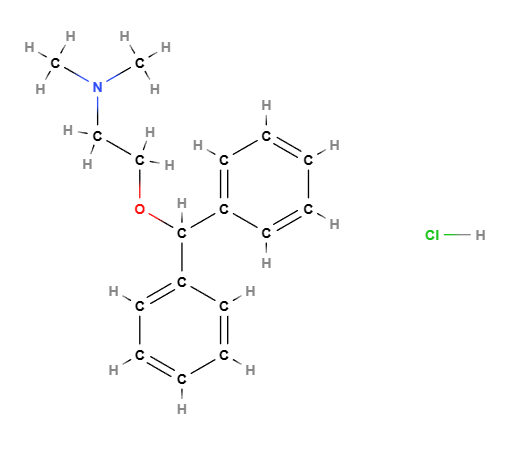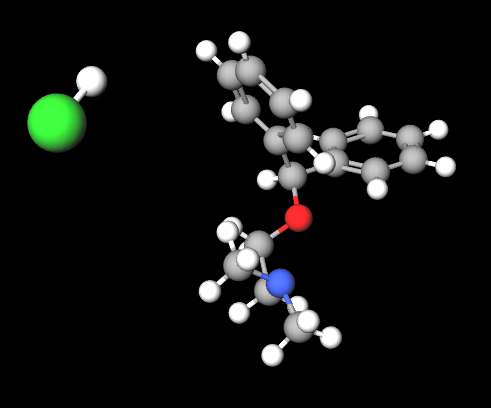| "Descrizione" by AColumn (9336 pt) | 2023-Sep-11 10:59 |
Review Consensus: 8 Rating: 8 Number of users: 1
| Evaluation | N. Experts | Evaluation | N. Experts |
|---|---|---|---|
| 1 | 6 | ||
| 2 | 7 | ||
| 3 | 8 | ||
| 4 | 9 | ||
| 5 | 10 |
Diphenhydramine hydrochloride is a long-standing drug as it was marketed in 1946 and has been used primarily for the treatment of allergies.
What it is for and where
Medical
Take only under medical supervision
It is a sedative antihistamine, a known agonist of 14 (hTAS2R14) and functional antagonist of the D2 receptor, it is an antidopaminergic agent that has the function of blocking post-synaptic dopamine receptors by exerting a control on symptoms such as headache (1), nausea (2), transient insomnia (3).
In particular, insomnia is a disorder that affects about 30% of the world's population and consists of difficulty falling asleep, difficulty maintaining sleep, and a feeling of not having slept well. These disorders can lead to more complex pathologies such as depression, anxiety, intolerance for life. Those who suffer from insomnia can be affected by very dangerous daytime sleepiness when driving motor vehicles. Diphenhydramine hydrochloride and melatonin have proved to be the most popular over-the-counter drugs. Scientific opinions are conflicting in this respect (4) (5).
Diphenhydramine hydrochloride administered intravenously in endoscopic procedures such as colonoscopy is useful in patients who are difficult to sedate (6).
Like all drugs it can cause side effects. Always ask the physician.
 |  |
- 2-Diphenylmethoxy-N,N-dimethylethylamine hydrochloride
- N-(2-Diphenylmethoxyethyl)-N,N-dimethylamine hydrochloride
- Dimedrol
- Carphenex
- Carphenamine
- Diphamine
- Allergival
- Prodryl
- Bendylate
| Evaluate |

